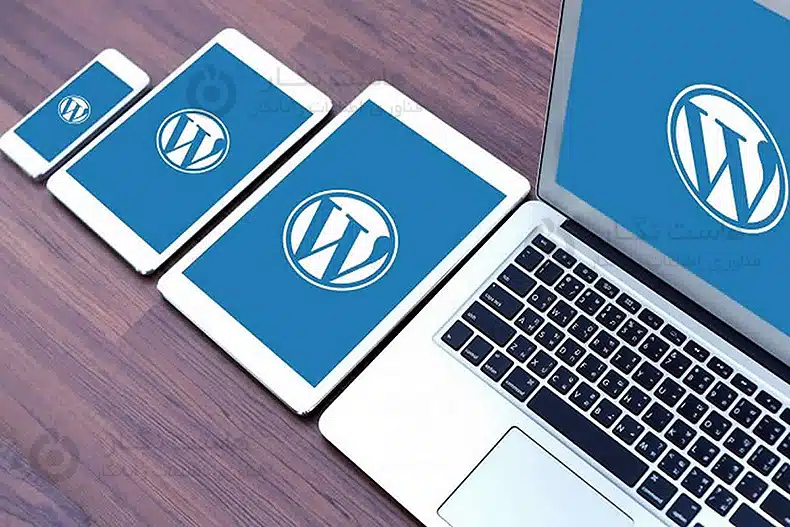
how to increase the speed of my wordpress site
Improving website loading speed is critical to providing a great user experience and optimizing search engine rankings. Here are several techniques you can use to increase your website’s loading speed:
Image optimization: compressing and resizing images without quality loss. Use appropriate image formats such as JPEG for photos and PNG for graphics with transparency. You can also use lazy loading, which loads images as the user scrolls down the page.
Minify and combine files: Minify HTML, CSS, and JavaScript files by removing unnecessary characters, whitespace, and comments. Additionally, combine multiple files into a single file to reduce the number of requests sent to the server.
Enable cache: Use browser cache by setting expiration headers for static resources. This allows returning visitors to load your website faster because certain elements are stored locally.
Use Content Delivery Networks (CDNs): CDNs store copies of your website’s static files on servers around the world. When a user visits your site, files are delivered from the closest server to their location, reducing latency and improving load times.
Reduce Server Response Time: Optimize your server configuration, code, and database requests to minimize server response time to requests.
Minimize HTTP requests: Each file (CSS, JavaScript, image, etc.) on your website requires a separate HTTP request. Minimizing the number of requests by combining files, using sprites, or removing unnecessary elements improves loading speed.
Enable Gzip compression: Compress your website files using Gzip, a file compression format. This significantly reduces file sizes and enables faster data transfer between the server and the user’s browser.
CSS and JavaScript optimization: Place CSS at the top of the HTML document and JavaScript at the bottom to allow for progressive rendering. Minify and concatenate CSS and JavaScript files to reduce the number of requests.
Using the browser cache: Set the appropriate cache headers to use the browser cache. This allows returning visitors to load your website faster because certain elements are stored locally.
Choose a reliable hosting provider: Make sure that your website is hosted on a server with sufficient resources and a reputable hosting provider. A slow server can significantly affect loading speed.
Remove Unnecessary Plugins and Scripts: Check the plugins and scripts used on your website and remove any unnecessary ones. They can add extra overhead and slow down your website.
Optimize your code: Write efficient and optimized code by avoiding unnecessary loops, optimizing database queries, and using caching mechanisms where possible.
Monitor and optimize website performance: Regularly monitor your website performance using tools like Google PageSpeed Insights, GTmetrix or Pingdom. They provide insight and suggestions on how to further improve your website’s loading speed.
Remember to test the loading speed before and after implementing these techniques to measure their effectiveness and ensure that your website is loading quickly for users.
How to increase wordpress website speed in mobile

When it comes to optimizing a website for speed, you should work on desktop and mobile speed as both devices attract a good amount of traffic. Some believe that mobile speed is more important because after indexing a site, Google considers the mobile version of a web page for ranking purposes over the desktop version.
However, desktop speed should not be overlooked as the overall loading speed of a site is still considered an important ranking factor. We have already explained in previous articles how to optimize the overall loading speed of the site, so in this tutorial we want to focus on increasing the speed of your site on mobile. Please follow the steps mentioned in all the articles for optimal site speed.
Why is your WordPress site slow on mobile?
A WordPress website can appear slow on mobile due to the following reasons. You’ll find that some of the reasons are mobile-specific, while others are common reasons that apply to the desktop version of your site as well.
Slow WordPress hosting
Large images are not optimized for mobile viewing
Smartphone processors typically have weaker CPU architectures and are slower than desktop computers
Absence of mobile-specific CSS rules, including profile size, resizing images, etc
Very heavy plugins simultaneously using too many resources
Lots of sliders, preloads or animations
Now that you have an idea of why, let’s continue with the steps to fix the problem and speed up your site on mobile.
How to speed up WordPress website on mobile
In this section, you will learn how to increase the speed of the WordPress website on mobile in just seven steps. which is as follows:
Switch to a fast hosting provider (if you’re not already using one)
Use a mobile-optimized theme
Image optimization
Implementation of storage
WordPress code optimization (JavaScript, CSS and HTML)
Check and reduce plugins
Enable AMP (optional)
Let’s dig deeper into each solution and learn how they help speed up your site on mobile.
Switch to a fast hosting provider
Choosing a fast hosting provider is often one of the best solutions to speed up your WordPress website on mobile devices. You can do any of the solutions mentioned below in this section and still experience bad mobile speed if your hosting server is not good enough. So the first step is to determine if the slow site speed is caused by poor server performance or not.
One of the ways to check this issue is to use a speed test tool to test the response time of your site’s server. Also, you can upgrade your website with one of the dedicated hosting plans.
Use a mobile-optimized template
People visiting your site use mobile devices of different sizes, operating systems, and manufacturers. Your website should be designed to respond to any mobile device.
Usually, it is the responsibility of the WordPress theme to provide a responsive design. That’s why you need to choose the template carefully. There may be hundreds of thousands of themes to choose from, but not every theme is responsive and ready for mobile viewing.
Optimize images
Images are one of the three main factors slowing down your website on mobile. They take up a lot of space on your server and take a while to download in the browser. This means that optimizing your site images is another best solution to speed up your WordPress website on mobile devices. Fortunately, there are a few things you can do to reduce the negative impact of images on your site.
If possible, use optimized image formats such as WebP or Avif
Reduce image size before uploading.
Run lazy loading so that images are loaded in the browser only when needed
To reduce the load on the site server, serve your images via CDN
If you want to optimize all of these, you can use the Optimole plugin. Optimole not only compresses, resizes and converts your images to the optimal format, but can dynamically serve optimized images through its CDN.
Implement the cache
With the WordPress cache, you can cache the finished HTML version of your site instead of forcing your server to process PHP for every visit. This means the server can respond with the finished page faster, which results in faster loading times for all your visitors, including visitors on mobile devices. You can see the article on the best WordPress cache plugins.
WordPress code optimization (JavaScript, CSS and HTML)
Just as having heavy image files can slow down your mobile load times, serving unoptimized code can also slow down your mobile visitors, especially if your site offers a lot of JavaScript. This can make optimizing your site code another important step in speeding up your WordPress website on mobile devices. Due to the high sensitivity of this, it is recommended that you leave it in the hands of experts and also take a backup of your site before doing anything to restore it in case of malfunction.
Review and reduce heavy plugins
While there is no rule on how many plugins you should have on your site, having too many plugins installed, slow loading, and low resources will definitely affect your site’s mobile load time. Weak plugins take a lot of resources from your server, which leads to slow loading times. We recommend that you check the plugins installed on your website and remove the plugins that are poorly coded.
To eliminate bad plugins, check user reviews in the WordPress plugin repository. Look at reviews left in the last 12 months and search for the word “slow”. If it appears in a significant number of reviews, it means that this plugin is partially responsible for slowing down your site. Find a better alternative for that plugin and then remove it from your website.

